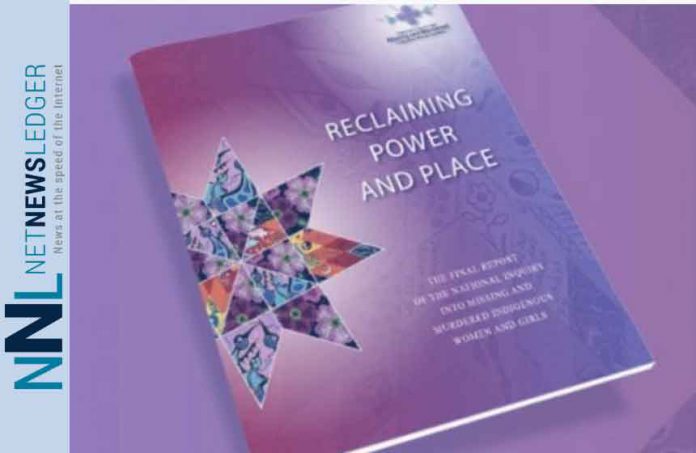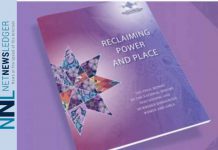Unceded Algonquin Territory, Ottawa, Ontario – Today, on the fifth anniversary of the National Inquiry into Missing and Murdered Indigenous Women and Girls ((MMIWG) Final Report, the Assembly of First Nations (AFN) released a new progress report evaluating the advances made in implementing the National Inquiry’s 231 Calls for Justice.
“Preventing violence against Indigenous women, girls, and gender-diverse people remains a critical priority for First Nations. Despite some encouraging steps, the AFN progress report reveals that the implementation of the Calls for Justice is far from complete,” said AFN National Chief Cindy Woodhouse Nepinak.
“Significant and substantive action is needed now more than ever to enhance the safety for First Nations women, girls, and 2SLGBTQQIA+ people and ensure justice for survivors and families. We call on all levels of government to recommit to implementing the Calls for Justice and ensure that First Nations are meaningfully included, based on the principles of justice, respect for human rights, and good faith, to improve safety of First Nations women, girls, and 2SLGBTQQIA+ people.”
This five-year independent review assesses the implementation progress across various themes identified in the National Inquiry’s final report. The findings indicate that only two of the Calls for Justice impacting First Nations have been fully implemented, with the majority showing minimal or no progress. The report highlights the urgent need for increased resources to achieve full implementation of the 231 Calls for Justice.
“Five years have passed since the release of the final report, and Survivors and families demand immediate action,” said Grand Chief Connie Big Eagle, Chair of the AFN Women’s Council. “While we have seen progress like studies for the establishment of new human rights institutions, the progress report shows that critical areas such as policing and corrections require urgent reforms. This was further highlighted in the Auditor General’s report released in March 2024, which indicated significant mismanagement of resources and poorly designed policing programs by Public Safety Canada. This inaction and lack of adequate funding and resources is unacceptable and must be addressed. Our Nations cannot afford to wait while our First Nations women, girls, and 2SLGBTQQIA+ members continue to face violence or disappear.”
“It’s shameful how little has been done to address the specific needs of 2SLGBTQQIA+ individuals,” said Tyler George, Chair of the AFN 2SLGBTQQIA+ Council. “While we have made some progress, more must be done to ensure the safety, security, and rights of 2SLGBTQQIA+ individuals. We call on Canada to prioritize and accelerate its efforts for the full implementation of the 231 Calls for Justice. This is essential not only to protect but also to uplift 2SLGBTQQIA+ individuals, creating safe and inclusive environments where they can thrive and where their rights as First Nations and 2SLGBTQQIA+ individuals are respected and upheld.”
Read and download the AFN Progress on Breathing Life into the Calls for Justice: A CFJ Progress Report.
The report builds on the AFN’s research and initiatives on Missing and Murdered Indigenous Women and Girls (MMIWG) as mandated by First Nations-in-Assembly. The AFN has previously released two reports, including “Breathing Life into the Calls for Justice: An Action Plan to End Violence Against First Nations Women, Girls, and 2SLGBTQQIA+ People” on June 3, 2021, and “Connecting Hearts and Making Change: Building on Breathing Life into the Calls for Justice” on June 3, 2023.
Support is available. The Hope for Wellness Help Line provides immediate mental health counseling and crisis intervention to all Indigenous people across Canada. This toll-free service is accessible 24 hours a day, 7 days a week. To talk with someone, please call 1-855-242-3310. Phone and chat counselling is available in English and French. Phone counselling is also available in Cree, Ojibwe, and Inuktitut, upon request.







